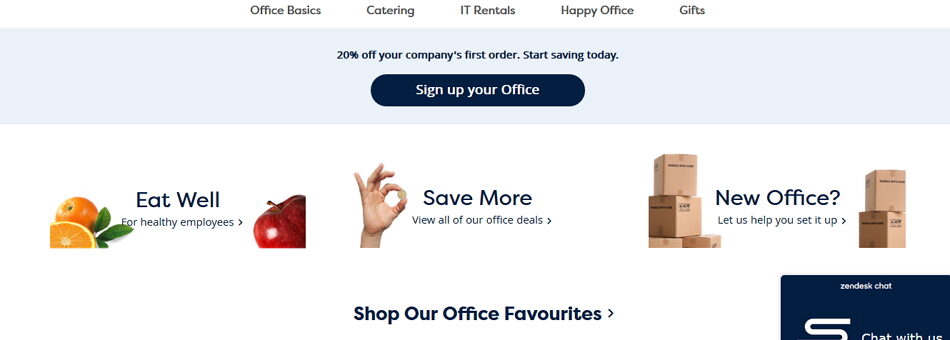 From: Tech in Asia
From: Tech in Asia
By Michael Tegos · 31 Oct 2016
Have you ever noticed there are never any paper clips around when you need them? What is that about? Kuala Lumpur-based Supplycart can’t give an answer, but it can help your office shop for supplies quickly and easily through its website.
For its trouble, it’s just raised a seed round of US$500,000 from seed-stage venture fund KK Fund, Malaysia’s Cradle Fund, and private investors.
Supplycart will offer more diverse services.
Supplycart gives small and medium-sized enterprises (SMEs) a way to buy office supplies, equipment, and even snacks and food for the workplace. The website offers price comparison from a number of vendors, hoping to be a one-stop shop for office procurement.
Supplycart is a companion of Freshcart, an online grocery joint founded in 2014 by Jonathan Oh and Soh Shangrong. Freshcart sells groceries to both consumers and business customers, stocking the pantries of companies like Unilever, BP, and Alliance Bank.
After the funding, Supplycart becomes the operation’s main brand, Jonathan tells Tech in Asia. The Freshcart component will continue offering business-to-consumer (B2C) services, but the company plans to eventually roll it into Supplycart in order to offer more diverse services. “Supplycart allows us to have a wider reach, to attack a different vertical without confusing branding,” Jonathan explains.
Extended reach
The team says it realized businesses lacked automation and the right technology to find the right suppliers for their needs. So it wanted to build a single ecommerce platform to sell these products.
“During this process, we pivoted our target audience from our initial consumer market focus, bringing our experience in the B2C ecommerce space into the B2B space,” Jonathan says.
The startup does not hold inventory of its own and works with partners for deliveries and fulfillment. “We believe in working together with partners that are good at what they are doing and leave it to their strengths to deploy for us, keeping assets and operational cost low,” Jonathan explains.
The funding will allow Supplycart to improve its operations and tech capabilities, Jonathan says. It will do that by hiring new people, enhancing its product, and growing its sales channels. The company hopes this will prepare it for national and regional expansion.
For now, Supplycart aims at Malaysia’s 600,000 SMEs – Jonathan says this is a potential billion dollar market for the startup. The company doesn’t reveal any figures, saying only that Freshcart has a 30 percent customer retention rate and that Supplycart’s client number is growing at a rate of 20 percent month-on-month.
Regionally, Supplycart competes with businesses like Indonesia’s Bizzy and Thailand’s OfficeMate. Jonathan thinks there is a big enough market for more than one player. Additionally, the company’s asset-light mode of operation helps it along and keeps things lean.
For the coming year, the team hopes to educate more businesses about the benefits of using an online service for their supply needs and build trust in its product and services. The company will focus its efforts on its home market before looking beyond the borders. “There is still so much to do here in Malaysia before moving on, but we are definitely ambitious in bringing Supplycart to the region,” Jonathan says.

